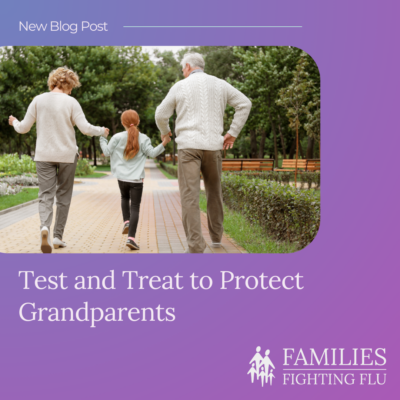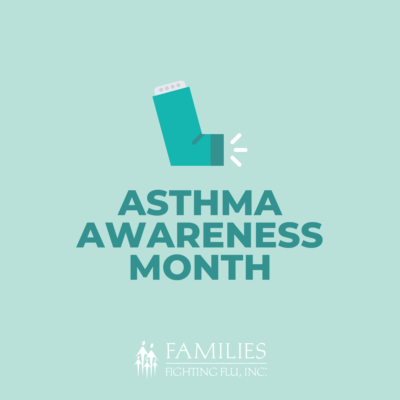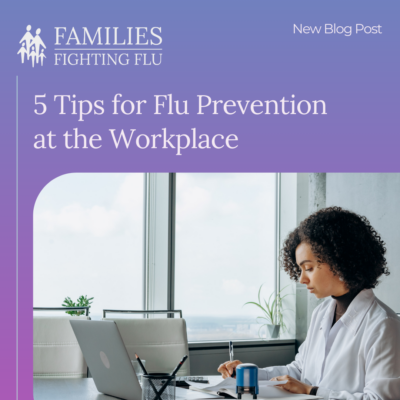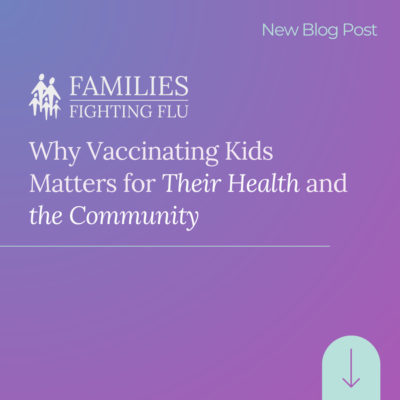
- Flu Prevention
Connections Between Influenza and Asthma

Do you know the link between influenza and asthma? Below, find out how you can help improve flu outcomes for people with asthma.
What is asthma?
The Centers for Disease Control and Prevention (CDC) estimates that 25 million people in the United States live with asthma. People diagnosed with asthma experience wheezing, breathlessness, chest tightness, and/or coughing at night or early in the morning. Asthma can affect both children and adults and can be diagnosed at any age.
What happens if I have asthma and get sick with flu?
Flu and asthma are both respiratory conditions that affect an individual’s lungs. People with asthma are at greater risk of experiencing flu-related complications because their airways are already compromised, so the inflammation caused by flu symptoms can make their asthma worse. They could experience:
- asthma attacks or a worsening of their lung disease
- progressive loss of lung function
- complications such as pneumonia and other respiratory diseases
- hospitalization

How asthma can lead to flu hospitalizations: Nate Gorenstein’s story
Nate was a happy 4-year-old who had asthma. When he caught H1N1 flu in 2009, his asthma exacerbated his flu illness. What started out as just a cough flared up and quickly grew worse. His pediatrician sent him to the hospital and he was admitted to the pediatric intensive care unit (PICU). Within five minutes of arriving to the PICU, he stopped breathing and needed to be put on a ventilator. Thankfully, after 12 days in the PICU, Nate’s condition improved and he was able to return home.
Read more about Nate’s flu and asthma experience here.
How can I prevent flu complications from asthma?
The best way to prevent flu complications in all individuals, including people with asthma, is to receive an annual flu vaccine. Experts recommend that people with asthma should receive the injectable flu vaccine (flu shot) rather than the nasal spray. Because the nasal spray is a mist that’s sprayed into an individual’s nostrils, the vaccine could trigger asthma symptoms like wheezing. People with asthma should also ensure that their loved ones also receive an annual flu vaccine to help stop the spread of flu amongst their close contacts.
Sources:
https://www.cdc.gov/asthma/faqs.htm
https://www.familiesfightingflu.org/flu-vaccines-people-with-certain-health-conditions/)


